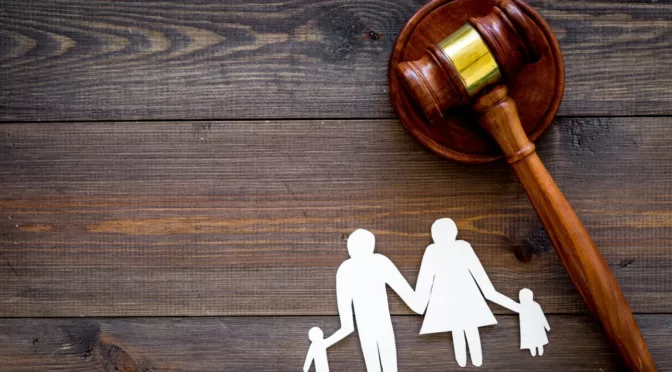I. Introduction
Feeling safe and secure in one’s home is a fundamental right, yet, unfortunately, it’s not a reality for all teens. This article is designed to empower teens who may be dealing with situations where they feel unsafe at home.
The issue of teens feeling unsafe in their homes is a serious one that requires immediate attention. It’s crucial to understand that no one deserves to live in fear, especially within their own home. If you’re a teen experiencing this, it’s important to know that you’re not alone and there are steps you can take to improve your situation.
II. Understanding the Reasons Behind Feeling Unsafe
Feeling unsafe at home can stem from a variety of situations. For some teens, it might be due to physical, emotional, or sexual abuse. For others, it could be the result of neglect, witnessing domestic violence, or living with someone who has substance abuse issues.
The impact of living in an unsafe environment can be profound and long-lasting. It can lead to anxiety, depression, difficulty concentrating, and other mental health issues. It can also impact a teen’s performance at school and their relationships with others.
Remember, it’s important to acknowledge these feelings of unsafety. They are valid and need to be addressed. Understanding the reasons behind these feelings is the first step towards finding a solution. In the next section, we’ll discuss what steps teens can take if they find themselves feeling unsafe at home.
III. The Right to Legal Representation in Massachusetts
In Massachusetts, teens have the right to request their own legal representation if they feel unsafe at home. This is an important step in ensuring their rights are protected and their voice is heard.
A lawyer can provide guidance and support, helping teens navigate the complex legal system. They can explain the teen’s rights, represent them in court, and advocate on their behalf. This can be especially beneficial in cases involving abuse, neglect, or other serious issues.
To request a lawyer, a teen can reach out to a local legal aid organization, a school counselor, or another trusted adult who can guide them through the process. It’s crucial to remember that these conversations are confidential and the teen’s safety is the top priority.
IV. Steps Teens Can Take If They Feel Unsafe at Home
If you’re a teen and you’re feeling unsafe in your home, it’s important to know that there are steps you can take to protect yourself:
- Reach Out to a Trusted Adult: If you feel comfortable, speak to a trusted adult about your situation. This could be a teacher, school counselor, coach, or family friend. They can provide support and help you explore your options.
- Contact Local Authorities or Department of Children & Families: If you’re in immediate danger, don’t hesitate to call 911. If the situation is not an immediate threat but still serious, you can contact Department of Children & Families in Massachusetts. They can investigate the situation and take necessary actions.
- Find a Safe Place to Stay: If it’s unsafe to remain in your home, consider staying with a trusted friend or relative. There are also shelters and organizations that provide safe housing for teens in crisis.
- Seek Professional Help: A counselor or therapist can provide emotional support and coping strategies. If you’re in school, a school counselor can be a good starting point.
- Request a Lawyer: As mentioned earlier, in Massachusetts, teens have the right to request their own lawyer if they feel unsafe at home. A lawyer can advocate for your rights and represent you in court.
V. Resources Available For Teens Feeling Unsafe
If you’re a teen feeling unsafe at home, know that there are resources available to help:
- Hotlines and Online Resources: There are several hotlines that provide immediate assistance, such as the National Child Abuse Hotline (1-800-4-A-CHILD) and the National Domestic Violence Hotline (1-800-799-SAFE). Online resources like the Crisis Text Line (text HOME to 741741) can also provide support.
- Local Community Resources: Local community centers, youth organizations, and shelters can provide immediate help and resources. They can offer a safe space, counseling services, and assistance with reporting abuse.
- School Resources: School counselors, teachers, and other staff members can provide support and guidance. They can help you connect with local resources and can provide a safe and supportive environment during school hours.
VI. How Friends and Community Can Help
Friends and community members play a crucial role in supporting teens who feel unsafe at home. Here’s how you can help:
- Recognize the Signs: Changes in behavior, unexplained injuries, or sudden changes in performance at school can all be signs that a teen is feeling unsafe at home. Being aware of these signs can help identify teens in need of help.
- Offer Support and Assistance: If a friend confides in you about feeling unsafe, listen to them, validate their feelings, and offer your support. Encourage them to reach out to a trusted adult or to use the resources mentioned above.
- Report Concerns to Appropriate Authorities: If you believe a teen is in immediate danger, don’t hesitate to contact local authorities. You can also report your concerns to a trusted adult or school counselor who can take further action.
VII. Conclusion
Feeling unsafe at home is a situation no teen should have to face. It’s crucial to understand that there are steps that can be taken and resources available to help navigate this challenging situation. From reaching out to trusted adults and local authorities to utilizing community resources and seeking legal representation, there are ways to ensure your safety.
Friends and community members can also play a significant role in providing support and assistance. Recognizing the signs of an unsafe home environment and offering a listening ear can make a world of difference.
Remember, you’re not alone, and help is available. If you’re a teen feeling unsafe at home, don’t hesitate to reach out and seek help. Your safety and well-being are paramount.
If you need legal advice or assistance, Reeves Lavallee PC in Worcester, MA, is ready to help. You can contact us at 508-425-6945. We’re here to provide the support and guidance you need during this challenging time.


